Sudan
The Nigerian presidential outsider Peter Obi has won the most votes in the key state of Lagos, narrowly beating the ruling party's candidate in his stronghold, according to provisional results released Monday by the Electoral Commission (Inec).
The economic capital of Africa's most populous country is one of the biggest vote-getters in this hotly contested presidential race between three front-runners, with state-by-state results only just being announced. Peter Obi, the Labour Party (LP) candidate, won 582,454 votes (nearly 43% of the votes cast in Lagos).
More than 87 million voters cast their ballots on Saturday to choose from 18 candidates the person who will have the tough task of turning around Nigeria for four years, plagued by a sluggish economy, recurrent violence by armed groups and bandits, and widespread impoverishment of the population.
The bustling economic capital has the largest number of registered voters in the country, more than seven million, and is the stronghold of APC candidate Bola Tinubu, 70, whom he governed from 1999 to 2007.
With 46% of the vote in Lagos, according to the provisional results of the National Electoral Commission (Inec), Mr. Obi has a narrow lead of less than 10,000 votes over his main opponent.
The "godfather", as Tinubu is known because of his political influence, admitted defeat in a statement, calling for calm after violence broke out in Lagos on Monday: "Sometimes you win, sometimes you lose. We must allow the process to continue unhindered in the country.
For Mr Obi, "this is an important victory, because Tinubu is at home in Lagos, he is considered the owner," commented Idayat Hassan, director of the Centre for Democracy and Development (CDD) in Abuja. "The 2023 election is redefining the political machine in Nigeria," she said.
The Labour Party (LP) candidate, who is very popular with a section of the youth, has managed to establish himself as a credible challenger to the two parties (APC and PDP) that have governed Nigeria for over 20 years.
And for the first time since the return to democracy in 1999, the country could experience a two-round presidential election.
- Community voting -
This election is crucial: Nigeria - with 216 million inhabitants - is expected to become the third most populous country in the world by 2050, while West Africa is threatened by a sharp decline in democracy and the spread of jihadist violence.
The continent's largest economy has become a global cultural powerhouse, thanks in particular to Afrobeats, a musical genre that is setting the world alight with stars like Burna Boy.
But faced with immense daily hardship, compounded by recent shortages, many Nigerians are calling for "change", disgusted by decades of poor governance and an ageing elite with a reputation for corruption.
For Obi, a 61-year-old Christian former governor of Anambra in the southeast, the game is far from over. Especially in the densely populated north of the country, where turnout is traditionally higher and both Bola Tinubu and PDP candidate Atiku Abubakar, a Muslim, have a large base.
The community vote is important in Nigeria, which has more than 250 ethnic groups, polarised between a predominantly Muslim north and a predominantly Christian south.
However, to be elected in the first round, the winner must obtain, in addition to a majority of the votes cast, at least 25% of the votes in two-thirds of the 36 states of the federation plus the territory of Abuja. If not, a second round should be held within 21 days.
The announcement of the full results will take time: as of midday Monday, the National Electoral Commission (Inec) in Abuja had given official figures for only four states: Ekiti (APC), Osun (PDP), Ondo (APC), and Kwara (APC).
- Accusations of fraud -
Saturday's vote went off peacefully, despite some security incidents and logistical hitches, which caused delays: counting sometimes went on late into the night, with many voters staying behind to "protect" their votes.
But the electoral process was complicated by the electronic transfer of results, which was tested for the first time at national level: most of the agents, who were supposed to upload the results from the 176,000 polling stations to a platform of the Inec, failed to do so.
The new system was introduced to improve the transparency of the election and restore voter confidence in a country where past elections have all been marred by accusations of fraud.
Only 30% of the results were uploaded to the Inec platform, which acknowledged "technical problems" but assured that the results were "safe" and could not be "falsified".
But already accusations of manipulation and attacks on the collection centres have been flying.



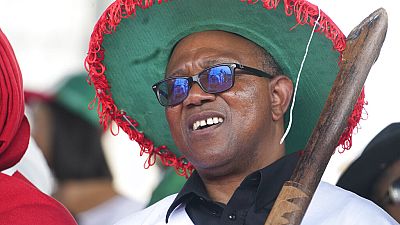

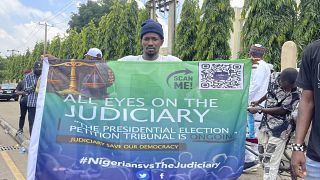
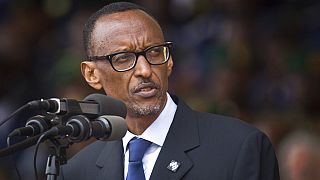
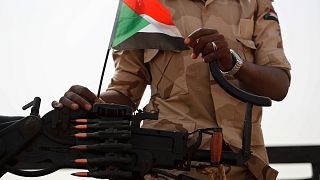
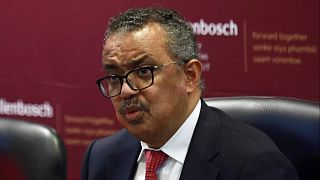
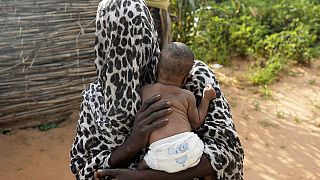



01:22
World will have to learn to live with heatwaves, UN says
01:39
Sustainable development financing conference opens in Seville
01:35
UN and Haitian officials mark one year since Kenyan police arrived to support security efforts
01:42
Gaza residents welcome rare organized aid delivery after months of chaos and hunger
01:50
UN urges renewed political and climate action in Libya amid humanitarian and governance crises
00:58
Cash crunch stalls UN probe into possible war crimes in DR Congo